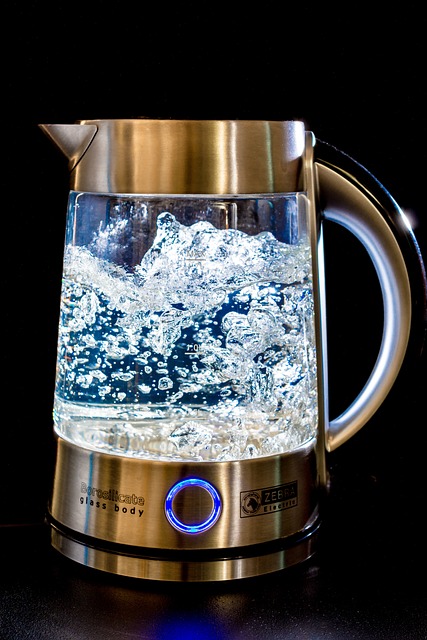Water heater leaks vary in type and severity, indicating issues from corrosion to faulty valves or rust buildup. Ignoring these leaks can lead to water damage, high bills, and unexpected repairs or tank replacements. Recognizing persistent water loss, strange noises, or inconsistent hot water supply is crucial for timely replacement of "Signs You Need a New Water Heater." Regular maintenance is essential to prevent costly plumbing problems.
Leaks Around Your Water Heater? It’s Not Just a Minor Inconvenience
Water heater leaks might seem like a routine issue, but they often signal more significant problems within your home’s plumbing system. Understanding these leaks and their underlying causes is crucial for maintaining a safe and efficient hot water supply. From common leak types to potential signs of larger issues, this article guides you through the process of identifying when it’s time to consider signs you need a new water heater. By recognizing the hints, you can make informed decisions regarding repairs or replacements, ensuring your home stays comfortable and your energy bills remain manageable.
- Understanding Water Heater Leaks
- – Common causes of water heater leaks
- – Types of leaks and their significance
Understanding Water Heater Leaks

Water heater leaks are more than just an inconvenience; they’re often a clear sign of underlying issues that can’t be ignored. Understanding why your water heater is leaking involves recognizing the different types of leaks and their potential causes. For instance, a small, persistent drip from the bottom of the tank could indicate a bad pressure relief valve, while a larger, sudden leak from joints or connections might point to corrosion or damage.
If you notice these signs, it’s crucial to consider them as signals that your water heater may no longer be functioning optimally and could require replacement. Ignoring leaks can lead to more severe problems, including rust buildup, reduced energy efficiency, and even the risk of a total tank failure, causing costly water damage. Therefore, being vigilant about potential leaks is essential in maintaining a reliable hot water supply and avoiding unexpected repairs or replacements.
– Common causes of water heater leaks

Water heater leaks can be frustrating and often point to more significant issues within your plumbing system. Identifying the source of the leak is crucial when considering whether it’s a mere annoyance or a sign you need a new water heater. Common causes include corrosion, especially in older heaters, where metal parts can degrade over time due to exposure to moisture and varying temperature fluctuations. Another frequent culprit is faulty pressure relief valves that fail to close properly, leading to continuous leaks. These valves are designed to release excess pressure, but when they malfunction, it can result in persistent water loss. Additionally, damaged or worn-out gaskets and seals can cause leaks around the tank’s base or at connections, indicating a need for replacement parts or even a new heater altogether. Recognizing these signs is essential, as ignoring them might lead to further damage and increased costs.
– Types of leaks and their significance

Water heater leaks can manifest in various forms, each indicating potential issues that should not be ignored. The most common types include drips from connections, corrosion-related seepage, and pressure relief valve (PRV) leaks. Drips or slow leaks from pipes and fittings suggest loose connections or worn-out gaskets, which, if left unaddressed, can escalate into more severe problems. Corrosion is another significant leak source; it erodes the heater’s tank and pipes, leading to weakened structural integrity and potential failures. PRV leaks, often characterized by a continuous or intermittent flow of water, are critical as they indicate excessive pressure buildup inside the tank, a sign of possible overheating or internal damage.
These leaks are not just minor inconveniences; they serve as clear Signs You Need a New Water Heater. Ignoring them could result in significant water waste, high utility bills, and even flooding due to ruptured pipes. Regular maintenance is key, but if leaks persist or you notice other symptoms like strange noises, excessive energy consumption, or inconsistent hot water supply, it’s time to consider replacing your water heater to avoid more costly repairs down the line.
Water heater leaks are not just an inconvenience; they’re often a clear sign of underlying issues that can’t be ignored. If you’re noticing drips or persistent moisture around your water heater, it could indicate problems with the tank, pipes, or valve connections. Instead of temporarily fixing a leak, addressing these signs is crucial for preventing more serious and costly damages down the line. Recognizing the Signs You Need a New Water Heater early on can help you avoid unexpected breakdowns and ensure your home’s plumbing system remains reliable.
